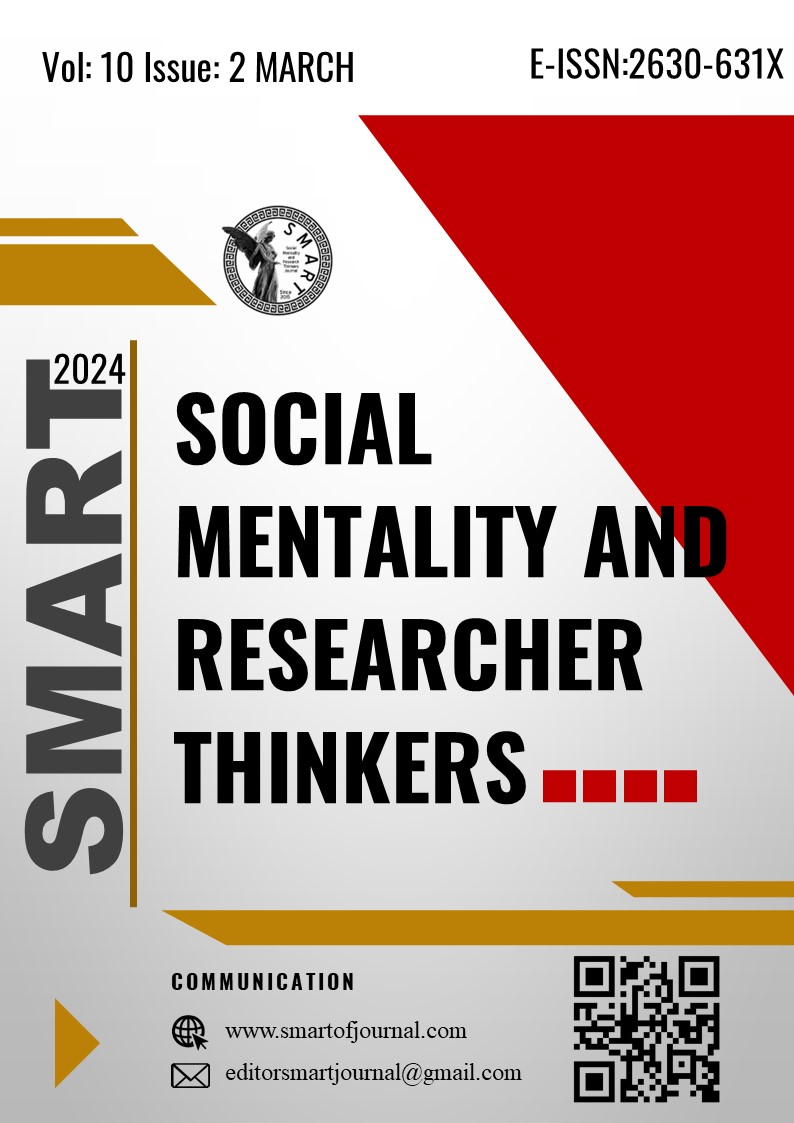Author :
Abstract
Ebu’l-A’lâ el-Mevdûdî Hint Alt-Kıtasını temsil eden bir yeni ilm-i kelâmcıdır. İslâm dininin hayatın tüm alanlarına nüfûz etmesi gerektiğine inanan Mevdûdî, İslâmî düzenin kurulması için birçok mücadeleler sergilemiştir. Dinin usul ile kaidelerini hakim kılma gayesiyle içinde yaşanılan dönemin şartlarını ve ihtiyaçlarını göz önünde bulundurmuştur. O, Kur’an ve sünnete dayanarak yeni yeni fikirler üretilmesini ve içtihat kanallarının hep aktif olmasını hedeflemiştir. Bunları hikmet argümanı üzerinden gerçekleştirmek isteyen Mevdûdî, hikmet aracılığıyla dinin inceliklerini ve prensiplerini anlamayı, İslâm’ın emir ve yasakları üzerinde düşünmeyi, eşya ile varlığın hakikâtine vâkıf olmayı ve bu bilinçle amel etmeyi amaçlamıştır. O, hikmeti derin anlayıştan süzülen şuurla din üzerinde istikâmet üzere yol alma şeklinde anlamlandırmıştır. Âlemin ile insanın abes ve amaçsız yaratılmadığını sık sık vurgulayan Mevdûdî, insanı hikmet aracılığı ile isabetli ve doğru düşünmeye davet etmektedir. O, davetçi ve direnişçi karakteri ile Kur’an ve sünnet bağlamında Müslümanların daima her alanda ilerleme kaydetmesini istemektedir. Dinin sadece teorik kurallardan ibaret olmadığını amelî ve uygulanabilir özelliğini hikmetle ortaya koymak istemiştir. Özellikle bu konuda dinin amaçlarına, maslahatlarına, fonksiyonelliğine ve hayatın her alanında yaşanabilirliğine yer vermiştir. İslâm dininin şekilsel ve törensel bir din olmadığını savunarak dinin özünün ve ruhunun anlaşılmasını istemiştir. Hakikat arayışında olan insanın hikmet şuurunu yitirmesi halinde ne gibi vahim sonuçlarla karşılaşacağına dikkat çekmiştir. O, hikmeti bir cevher mesabesinde görmüş ve önemi haiz kavramlar arasında zikretmiştir. Peygamberlere verilen bu özel ilimden insanlığın da faydalanması gerektiğini savunmuştur.
Keywords
Abstract
Ebu'l-A'lâ el-Mawdudi is a new theologian representing the Indian Subcontinent. Mawdudi, who believed that the Islamic religion should penetrate all areas of life, exhibited many struggles for the establishment of the Islamic order. He took into account the conditions and needs of the period in which he lived, with the aim of making the rules and principles of religion dominant. He aimed to produce new ideas based on the Quran and the Sunnah and to ensure that the channels of jurisprudence were always active. Mawdudi, who wanted to realize these through the argument of wisdom, aimed to understand the subtleties and principles of religion through wisdom, to think about the orders and prohibitions of Islam, to be aware of the truth of things and existence, and to act with this consciousness. He interpreted wisdom as moving in the right direction on religion with the consciousness filtered from deep understanding. Mawdudi, who frequently emphasizes that the universe and man were not created uselessly and without purpose, invites people to think accurately and accurately through wisdom. With his calling and resistance character, he always wants Muslims to make progress in every field within the context of the Quran and the Sunnah. He wanted to reveal with wisdom the practical and applicable features of religion, which are not just theoretical rules. Especially in this regard, he included the purposes, benefits, functionality of religion and its livability in all areas of life. He argued that Islam is not a formal and ceremonial religion and wanted to understand the essence and spirit of the religion. He drew attention to what dire consequences a person in search of truth would face if he lost his awareness of wisdom. He saw wisdom as a substance and mentioned it among important concepts. He argued that humanity should also benefit from this special knowledge given to the prophets.





